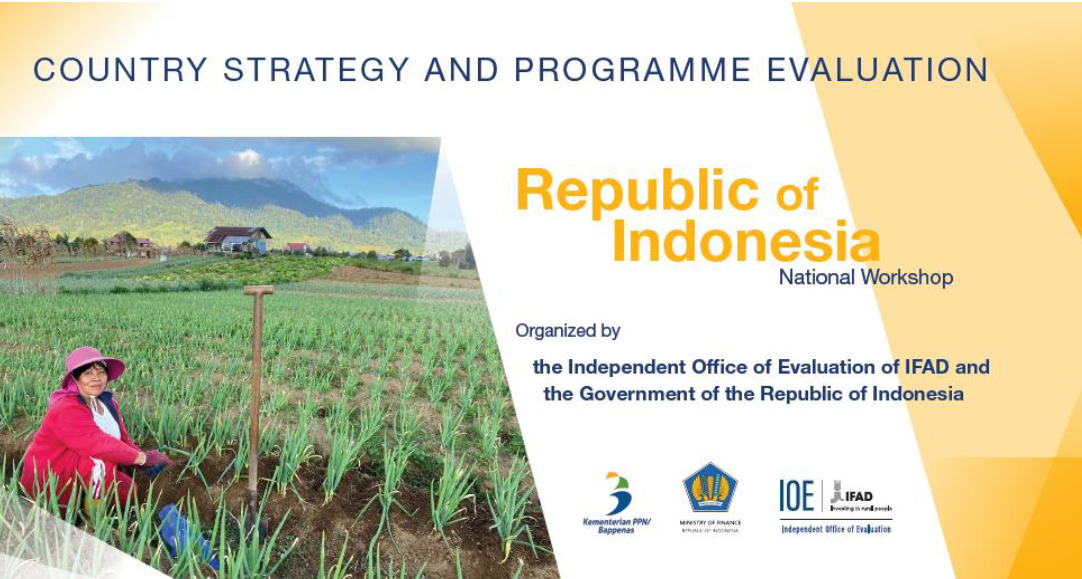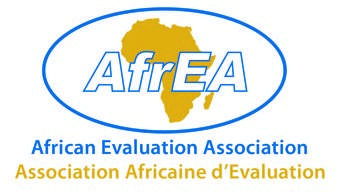Whole value chain approach found to be unique in Indonesia - IOE
Rome, 18 February 2022 – The evolution from productivity-focused to whole value chain approach adopted by the IFAD portfolio in Indonesia has been noted as unique to the region. The Independent Office of Evaluation of IFAD (IOE) presented this finding during the Indonesia Country Strategy and Programme Evaluation (CSPE) national learning workshop, held on 18 March 2022.
Co-organized by the Government of Indonesia and IFAD’s IOE, in collaboration with IFAD’s Asia and the Pacific Division, the on-line learning workshop benefitted from the participation of representatives of the Government, development partners, civil society organizations, private sector partners, and IFAD senior management and staff. Over one hundred people joined the event, including from the Ministry of National Development Planning; Ministry of Foreign Affairs; Ministry of Finance; Ministry of Agriculture; Ministry of Villages, Disadvantaged Regions and Transmigration; Ministry of Public Works and Housing; Ministry of Environment and Forestry; Ministry of Home Affairs; and UN partner entities.
“I believe that our fruitful discussions will help to assess the results of IFAD’s strategy and programmes in Indonesia, as well as to generate findings and recommendations for improvement of the partnership between IFAD and the government of Indonesia. This is crucial to effectively support our efforts towards inclusive and sustainable rural transformation”, affirmed Dian Lestari, Director of Centre for Climate Finance and Multilateral Policy, Fiscal Policy Agency, Ministry of Finance.
Meeting participants recognized the significant contribution that IFAD projects and GEF grants have made to national and regional policies. A notable contribution to policymaking includes improvements to village governance, particularly in participatory practices and the use of the Village Fund. In this context, services provided have been responsive to beneficiaries’ needs, as Village Facilitators provided effective support and motivation to beneficiaries, contributing to high beneficiary participation during project implementation.
“The partnership between IFAD and the government of Indonesia has been highly pertinent to reduce poverty and enable inclusive and sustainable rural transformation. The farmers themselves report that they have benefitted from farmer field schools and from working with village facilitators”, explained Indran A. Naidoo, Director of IOE.
Another significant achievement was the Sustainable Management of Peatland Ecosystems in Indonesia (SMPEI) GEF5 project, which introduced an innovative approach for peatlands management as it engaged farmers in real-time fire monitoring and warning systems.
“We are pleased to see that we have been successful in disseminating enhanced technologies which have translated into increased yields and productivity. Of particular importance to us is the joint efforts of the government and IFAD on joint natural resource management, specifically on the peatland management which has received global recognition at COP 26, in Glasgow, as best practice”, noted Donal Brown, Associate Vice-President, Programme Management Department, IFAD.
Despite the priority given to innovation, sufficient time and resources have not been committed to develop useful monitoring and evaluation (M&E) and knowledge management (KM) systems, which are key instruments for documenting and sharing innovations and models.
“This has limited the possibility of demonstrating the achievement of projects, including innovations, scaling-up and the sharing of lessons with partners inside and outside of the country”, stated Dr Naidoo.
On the ground, evidence of rural impacts attributable to project interventions is scarce, while evidence is lacking of the projects’ impacts on human and social capital. Moreover, effectiveness in market access and value chain development has been limited. All projects faced challenges in establishing market linkages and value chain approaches adopted to-date have been largely promoting market orientation rather than being market-led.
“Designs need to be less complex, and include components on strengthening the capacities of implementing agencies and partners. Sufficient time and resources are needed to set-up the financial and management systems at start-up, and that needs to be factored into the design”, highlighted Jeanette Cooke, Evaluation Analyst at IOE.
Going forward, priority must be given to developing simple, relevant, focused M&E tools for farmers to use themselves that can be aggregated for project purposes. KM should also be prioritized through a country programme wide strategy, which engages partners, promotes policy dialogue and stimulates regionally and internationally recognized technical capacity.
“With the appropriate strategy and close monitoring, we except that the implementation of future programmes can be improved. This country strategy and programme evaluation provides the right platform to highlight lessons, challenges and opportunities for our future development cooperation”, stated Ms. Rd. Siliwanti, Director of Multilateral Funding Cooperation, Ministry of National Development Planning of the Republic of Indonesia.
With regard to the development of future projects, these should be designed to suit the capacity of implementing agencies, the needs of targeted districts, and project duration.
“The United Nations system, with the support from the Indonesian Government, remain committed in improving food systems by boosting rural development to achieve zero hunger and poverty in the critical times of a climate urgency”, underscored Valerie Julliand, UN Resident Coordinator in Indonesia.
Since the beginning of its operations in Indonesia in 1980, IFAD has approved 21 projects, of which one was cancelled. Accounting for counterparts funding, the total cost of the remaining 20 projects is US$2,765 million, of which IFAD has financed US$670 million. The nine investment projects covered in this evaluation received funding commitments of US$2.2 billion, with IFAD loans comprising US$449 million (21 per cent).
IOE’s latest CSPE in the country covers the years 2013 to 2021. The two previous evaluations were completed in 2004 and 2014.
For further information, please contact Alexander Voccia at [email protected]

